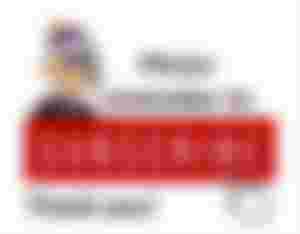2 September 2021, Somewhere in the Metaverse - UplandDood (@Just1Dood)
Written on 3 August 2021
Previously on Financial Freedom...
As with Episode 1, I'll start with some disclaimers (for the complete disclaimers, please read Episode 1):
"Not Financial Advice. Do your own research. All thoughts are my own. Did not run through any checkers. Definitions are respectively owned by the definers and attributed as such."
In the last episode, I'd talked about Passive Income and what that is. It is important that you understand that before reading this. You can check out Episode 1 if you haven't already.
Let's continue with Episode 2 then.
Residual Income
From the same Investopedia site that I'd derived the definition of Passive Income in Episode 1, Residual Income is described as such:
Residual income is not exactly a type of income but a calculation determining how much discretionary money an individual or entity can spend after paying their bills and meeting their financial obligations.
[I have briefly touched on both Passive and Residual income in my article "Are you a good steward of your bank? You can check that out if you like. A good read, if I may do a little shameless self-promotion. LOL."]
In my opinion, if one's aim is to be financially free, this Residual Income, though not an income per definition, is as important a factor as Passive Income that I'd spoken about in Episode 1.

Just because I am generating a Passive Income does not mean that I have enough to live off of. This may come as a surprise to you. I don't blame you because of all the hype about earning a Passive Income.
Let me elaborate so that it is clearer.
If my passive income is $2000 per month, that may sound a lot, and looking at that it may seem that it's enough for me to live on.
But if I have the following monthly expenses:
$1200 mortgage loan repayment
$400 car loan payment
$200 student loan payment
$200 utilities (electricity, water, gas for car, phone bills, internet)
I am then only left with $100 to survive on for the month. That's the residual income. Is that enough to retire on? If it's not enough, then we are far from being financially free.
Let's assume that the above describes your income situation. Does that mean that if you're unable to increase your passive income further then you'll never get to enjoy a financially free life?
Not necessarily. The road to reach that goal is a long one but it is a process and a journey. Here's why.
See three of the four main expenses mentioned above? Three out of the four are loans. Loans mean that the total amount will be knocked down as you continue with your payments over time until such a time where you have paid them all off.
The good news is that one day, these will be paid off. The other good news is that due to the different tenure of your loans, some will be paid off earlier than others.
Let's further assume that your student loan will be paid off in another year. At the end of that year, you'll have $200 extra. And once all your other loans have been paid off, you'll have a total of $1800 discretionary income (residual income) at your disposal.
Since we're on the topic of loans, let's side-track a little. Many of us thought that the extra we have at the bank earning a 3-5% interest is helping us build our net worth. But what we don't realize oftentimes is that we have a debt (credit card comes to mind) that's costing us at least 18% in interest. You do the math. Should you leave that $200 extra in the bank generating 3-5% interest or should you use that to help knock off more of the 18% interest debt?
If you're living below your means, then you are on your way to being financially free. If you're living way below your means, then the extra discretionary income can be used to strengthen your financial position.
Yes, I know the above is a very simplistic way to look at things but the basic concept and understanding are all there to spark a deeper thought into how you can work your way to being financially free.
Here's a sobering thought. Even though you have achieved a comfortable residual income that is derived from your passive income, you are still far from being financially free.
We will have a look at that in the next Episode.
Thank you for reading. Stay safe and see you in the next part.
[This is not financial advice. It is the writer's personal viewpoint. Please do your own research.]

Sources:
Header: Unsplash.com - Jingming Pan
Image 1: Unsplash.com - Kelly Sikkema
All Rights Reserved ©2021 UplandDood | #ClubBrokeBCH

Thank you again for dropping by. Have fun with English. Remember to share your experience in the comment section.
Do drop by to say hi at my following addresses. I promise I'll be at home :)
NoiseCash: UplandDood
Twitter: UplandDood
Publish0x: UplandDood (link takes you to site. You'll have to search for UplandDood to find me)

...and you will also help the author collect more tips.



Most of my life I have lived on what I call the 80/20 rule. That is, you live on 80% of your means, and save and invest the 20% you don't need. That 20% builds on your passive income through dividends and other things you have invested in, and of course that can also be used to recalculate your income.
These days my figures are actually around 60/40 because at the same time through the years as my income has increased both through work and investments, I really have not changed my cost of living.
We are at the point now that we really don't even use our paychecks anymore. They all go straight into the bank or our investment accounts, and I give myself a set salary each month.